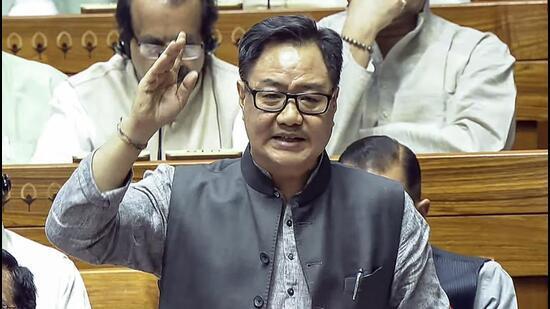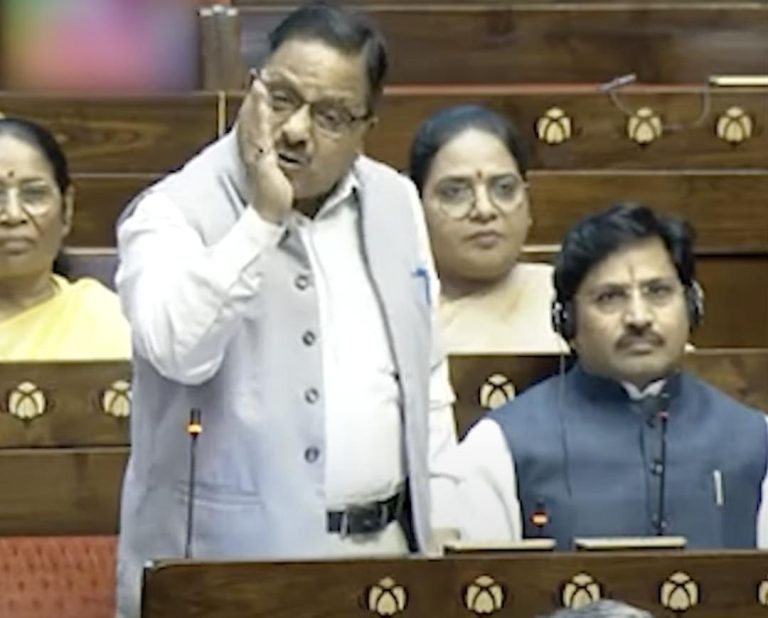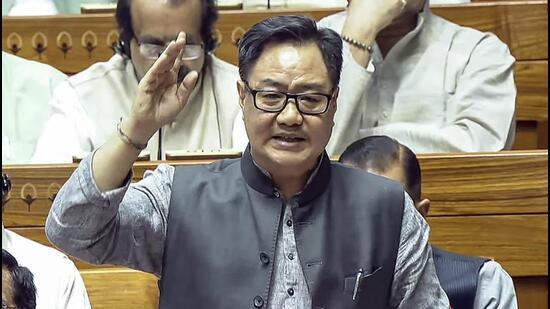
Sec 40 removed, land can’t be made Waqf property overnight: Rijiju
The Waqf (Amendment) Bill, 2024, was tabled in the Lok Sabha on Wednesday by Union Minister Kiren Rijiju. During his address to the House, Rijiju highlighted the significance of the amendment, particularly the removal of Section 40 of the Waqf Act. Section 40 was a contentious provision that allowed the Waqf Board to declare any land as Waqf property. Rijiju emphasized that this provision was misused to such an extent that the number of properties increased to millions.
The Waqf Act was enacted in 1995 to manage and regulate Waqf properties in India. Waqf properties are charitable endowments that are donated to religious institutions or individuals for the benefit of society. The Act aimed to ensure the proper management and utilization of these properties. However, over the years, the Act has faced criticism for its loopholes and misuse by certain individuals and organizations.
Section 40 was one such provision that was widely criticized for its ambiguity and potential for misuse. The provision allowed the Waqf Board to declare any land as Waqf property, without providing clear guidelines or procedures for doing so. This led to allegations of arbitrary and unauthorized declarations of Waqf properties.
Rijiju’s comments during the Lok Sabha debate highlighted the extent of the misuse of Section 40. He stated that the provision was used to declare millions of properties as Waqf, without any proper justification or documentation. This not only led to confusion and disputes but also undermined the integrity and credibility of the Waqf system.
The removal of Section 40 is a significant step towards reforming the Waqf Act and ensuring the transparency and accountability of the Waqf Board. The amendment bill aims to provide a more structured and transparent process for declaring and managing Waqf properties.
Rijiju’s defense of the amendment bill was met with skepticism by some opposition members, who claimed that the removal of Section 40 would lead to a loss of Waqf properties. However, Rijiju emphasized that the bill does not aim to encroach upon the rights of Waqf property holders but rather to ensure that the properties are managed and utilized for the benefit of society.
The controversy surrounding the Waqf Act and Section 40 is not new. In 2019, the Supreme Court had struck down a Delhi High Court order that had allowed the Waqf Board to declare a disputed property as Waqf. The court had ruled that the Waqf Board did not have the authority to declare a property as Waqf without a valid title or documentation.
The removal of Section 40 is a step towards addressing the concerns of the Supreme Court and ensuring that the Waqf Act is implemented in a manner that is transparent, accountable, and just. The amendment bill also aims to provide a more robust framework for the management and utilization of Waqf properties.
The Waqf (Amendment) Bill, 2024, is a significant development in the ongoing efforts to reform and strengthen the Waqf system in India. The removal of Section 40 is a crucial step towards ensuring the transparency and accountability of the Waqf Board and protecting the rights of Waqf property holders.
In conclusion, the removal of Section 40 from the Waqf Act is a welcome step towards reforming the Waqf system in India. The amendment bill aims to provide a more structured and transparent process for declaring and managing Waqf properties, which will help to ensure the integrity and credibility of the Waqf system. As Rijiju emphasized, the removal of Section 40 does not aim to encroach upon the rights of Waqf property holders but rather to ensure that the properties are managed and utilized for the benefit of society.





